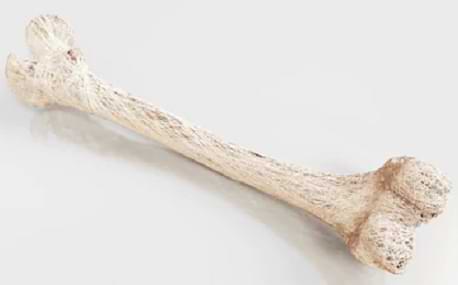HOW SLEEPING CAN MAKE YOU GROW TALLER
Getting enough quality sleep on a daily basis is essential for survival just like food and water.
No wonder it is considered as the “third pillar” of health, along with nutrition and exercise.

Sleeping does help you to grow taller in many ways as discussed later on this article, yet many of us decide to sacrifice a good night’s sleep for different reasons including study, work, or having fun.
However, some illnesses, medications and sleep disorders can as well prevent us from having quality sleep .
According to the American National Sleep Foundation, it’s recommended that healthy adults sleep for 7–9 hours every night.
However, an increasing number of adults experience chronic sleep deprivation or get insufficient sleep.
This number is believed to be approximately one third of adults who report getting less than 6.5 hours of sleep every night .
Many factors contribute to this and they include but are not limited to;
1. A Stressful lifestyle.
2. long working hours.
3. Internet and media use.
4.Increased exposure to environmental light.
5.sleep disorders
6.longer commuting time.
Adolescents, who sleep approximately 5–6 hours or less per day because of academic demands, stress and early school start times also suffer from sleep deprivation.
So how can you grow taller while sleeping and how can sleep deprivation affect your height ?
1. Without adequate sleep, bone formation is impaired.
A study that aimed to establish the impact of chronic sleep deprivation on the chemical processes that take place in bones and bone density in rats, researchers at the Medical College of Wisconsin observed that new bone stopped forming in sleep deprived rats yet bone wasting continued. [1]
Normally, there’s a delicate balance between bone formation and wasting which keeps bones healthy and strong.

Hence, the shift in the balance between bone formation and wasting due to lack of sleep among sleep deprived rats not only means that bone growth or lengthening is impossible, but also leads to weak bones which increases the risk of brittle bones and bone fractures.
The fat in bone marrow also decreased due to sleep deprivation.
Hence, without adequate sleep on a daily basis, growing taller especially after puberty will only be a pipe dream.
2. Growth and development of bones takes place when we are sleeping.
When another study that involved baby lambs was conducted, US researchers placed sensors inside the baby lambs leg bones and it was ascertained that the majority of growth spurts took place when the animals were either sleeping or resting.

Every 2 – 3 minutes, the sensors measured the leg bones for about 3 weeks and results indicated that almost all growth in baby lamb bones took place when they were either resting or sleeping.
According to the Journal of Pediatric Orthopedics, the University of Wisconsin, scientists believe that this also applies to humans which is why children tend to feel growing pains during the night when sleeping .
3. Inadequate sleep leads to Lower vitamin D concentrations.
Inadequate sleep or sleep deprivation is associated with lower vitamin D concentrations which affects intestinal calcium absorption.
Vitamin D catalyzes the absorption of calcium which is required for bone growth and development and that’s why low serum vitamin D level is significantly associated with low bone mineral density .

Some studies have also revealed that individuals who sleep for 6 hours or less have significantly lower total and regional bone mineral density compared to those who sleep for at least 8 hours every night.
And children who sleep for short periods have worse bone accumulation particularly during puberty when the body is rapidly growing.
More reading on the reasons why vitamin D is important for bone growth can be done on the foods to eat to grow taller page. That’s another reason why sleep can make you grow taller.
4. Less Growth hormones released
Most G.H is released approximately 1 – 2 hours from the commencement of sleep with more than 50 percent released during REM sleep.
Without adequate sleep, G.H secretion is significantly curtailed particularly during middle adulthood.
Growth hormone induces the production of Insulin Like Growth factor 1 (IGF-1) in the liver which in turn directly or indirectly promotes longitudinal bone growth and tissue development.
If your growth plates still exist, growth hormone acts directly on the growth plate cartilage as a catalyst for cell division and multiplication.
This in turn speeds up the process of manufacturing new bone and hence longitudinal bone growth.
Reasons why you may get inadequate sleep
Summary of Common sleep disorders
1. Insomnia
When you struggle to fall asleep and or wake up a couple of times during the night and find it difficult to fall asleep again.

Common causes include;
1. Time when you go to sleep.
2. Anxiety and or depression.
3.Old age.
4. Changes in the sleep environment.
5. Medications like; decongestants, bronchodilators, some antidepressants, steroids, diuretics, and using sleeping pills inappropriately.
Solution;
Some times insomnia can be resolved without any medication depending on the cause.
Proper sleep hygiene which will be discussed later is however highly recommended.
2. Sleep apnoea/ apnea
When you wake up frequently during sleep due to failure to breath.
Causes;
Being overweight, allergies, genes, brain disease leading to failure by the brain to send signals needed to breath during sleep, medications like morphine and other narcotics.
Solution;
The continuous positive air pressure machines and other breathing devices as well as lifestyle changes like losing weight, sleeping on one side, and avoiding alcohol and smoking.
How to ensure that you fall asleep fast and get enough quality sleep everyday ( Recommended sleep hygiene).
1. Sleep and wake up at the same time everyday.
2. Use dim lighting in your bedroom and avoid bright lights at night.
3. Avoid mental or physical exercises moments before going to sleep.
4. Don’t nap for more than 20 minutes during the day.
5. Avoid worrying and anxious thoughts.
6. If you fail to sleep, get out of bed and try reading until you feel sleepy again but don’t watch T.V.
7. Avoid stimulants like caffeine or taking coffee moments before bed.
8. Avoid heavy meals close to bed time.
What to do if you fail to fall asleep?
Below are some of the natural remedies
1. Use garlic.
Garlic has been used to induce sleep for centuries and can be used in two ways;
Either place a clove of garlic without the cover under your pillow or take a mixture of milk honey and crushed garlic approximately 30 minutes before going to bed.
Though no research has been conducted to prove this remedy, it has been used for quite some time to induce sleep and I personally place the garlic clove beneath the pillow whenever I struggle to fall asleep and it seems to work wonders
2. Eat melatonin rich foods 2 hours before bed time.
Melatonin hormone is secreted by the pineal gland (located in the brain) almost exclusively during the night, when it’s dark and it regulates sleep and wakefulness.

Night-time levels of melatonin are at least 10 times higher than daytime concentrations.
Melatonin helps to reduce the internal body temperature in order to induce a good night’s sleep.
As a Medicine, melatonin is used for treatment of insomnia.
Studies show that melatonin levels in blood increase approximately 2 hours after eating foods rich in melatonin.
The excellent food sources of melatonin include; tomatoes, broccoli, peanuts, bananas, oranges, and pine apples.
3. Take warm milk with honey.
Milk contains tryptophan an essential amino acid only found in some foods we consume.
Tryptophan is necessary for the release of serotonin hormone which is converted into melatonin.

Since studies show that over 50 percent of patients admitted in intensive care units suffer from sleep disorders due to factors like change of sleep environment, lighting, noise and therapeutic procedures, research was carried out on coronary patients admitted in the cardiac critical care unit.
It was established that milk mixed with honey was a necessary intervention to enhance sleep quality among coronary patients. [2]
4.Chamomile tea.
Chamomile products like oil, tablets and tea have been used to induce sleep for centuries.
German chamomile is extensively used as a herbal medicine to promote sleep.
The sedative effects of chamomile are partly attributed to the flavonoid, apigenin that binds to benzodiazepine and GABA receptors in the brain and might be responsible for some sedative effect .
Simply take a cup of water or milk mixed with chamomile tea approximately 30 minutes before bed.
5. Lavender essential oil.
Lavender oil is obtained from flowers of Lavender plant.
It’s used as a perfume and in massage parlors to promote relaxation through the skin.
studies that investigated the effectiveness of lavender odor on quality of sleep demonstrated that lavender improved sleep quality among students, ischemic heart disease patients, and midlife women with insomnia [3].
Simply soak the oil in a piece of cloth and place the soaked cloth approximately 20 cm from your nose to inhale it 10 or so times.
After inhaling it, place the soaked cloth besides your bed or pillow until morning.
How much sleep do you need ?
Sleep is considered to be adequate when there is no daytime sleepiness or dysfunction.
This may vary from person to person and may depend on many factors but most importantly, age;
Infants (ages 0-3 months) require 14 -17 hours a day
Infants (ages 4-11 months) require 12-15 hours a day
Toddlers (ages 1-2 years) require about 11-14 hours a day.
Pre-school children (ages 3-4 years ) require 10-13 hours a day.
School-age children (ages 5-12 years) require 9-11 hours a day.
Teenagers (ages 13-17 years) require 8-10 hours each day.
Adults (18 -64 years) require 7 – 9 hours a day.
Older adults (ages 65 and older) require 7-8 hours a day.
AUTHOR BIO
As a short guy who was psychologically distressed almost everyday due to the challenges he faced in life accountable to his height, Dennis Raney (Bsc.) finally somehow found a way to overcome this adversity by naturally increasing his height with lifestyle and healthy changes.
He has been researching this topic for over a decade and practically applying the knowledge so he decided to share his wealth of information about the topic of increasing height both during and after puberty in the book and on this blog.
Feel free to connect with him for a conversation:
Email: Dennis »»
Facebook: Connect »»
NEXT : how to grow taller after puberty complete guide.
n

